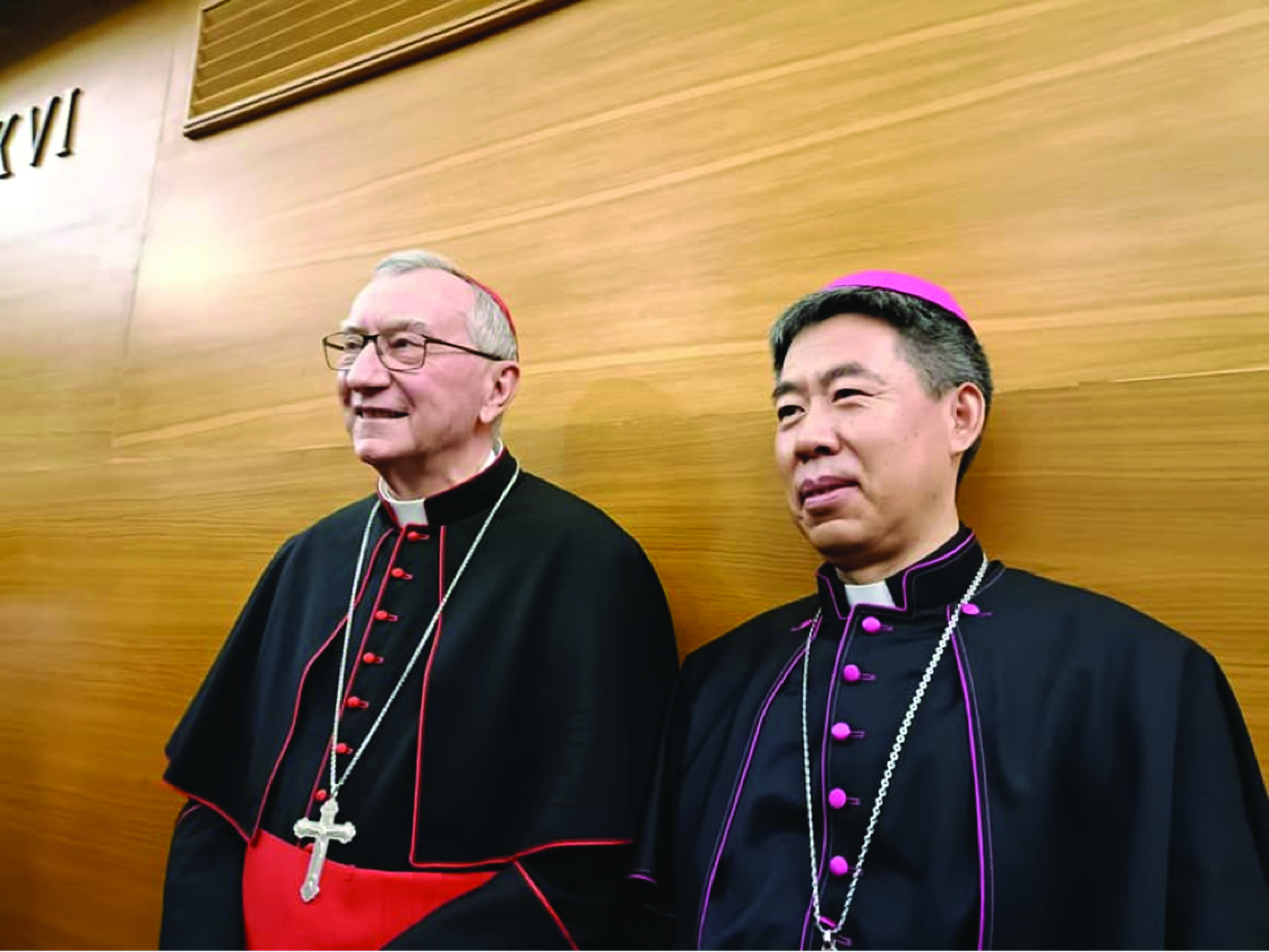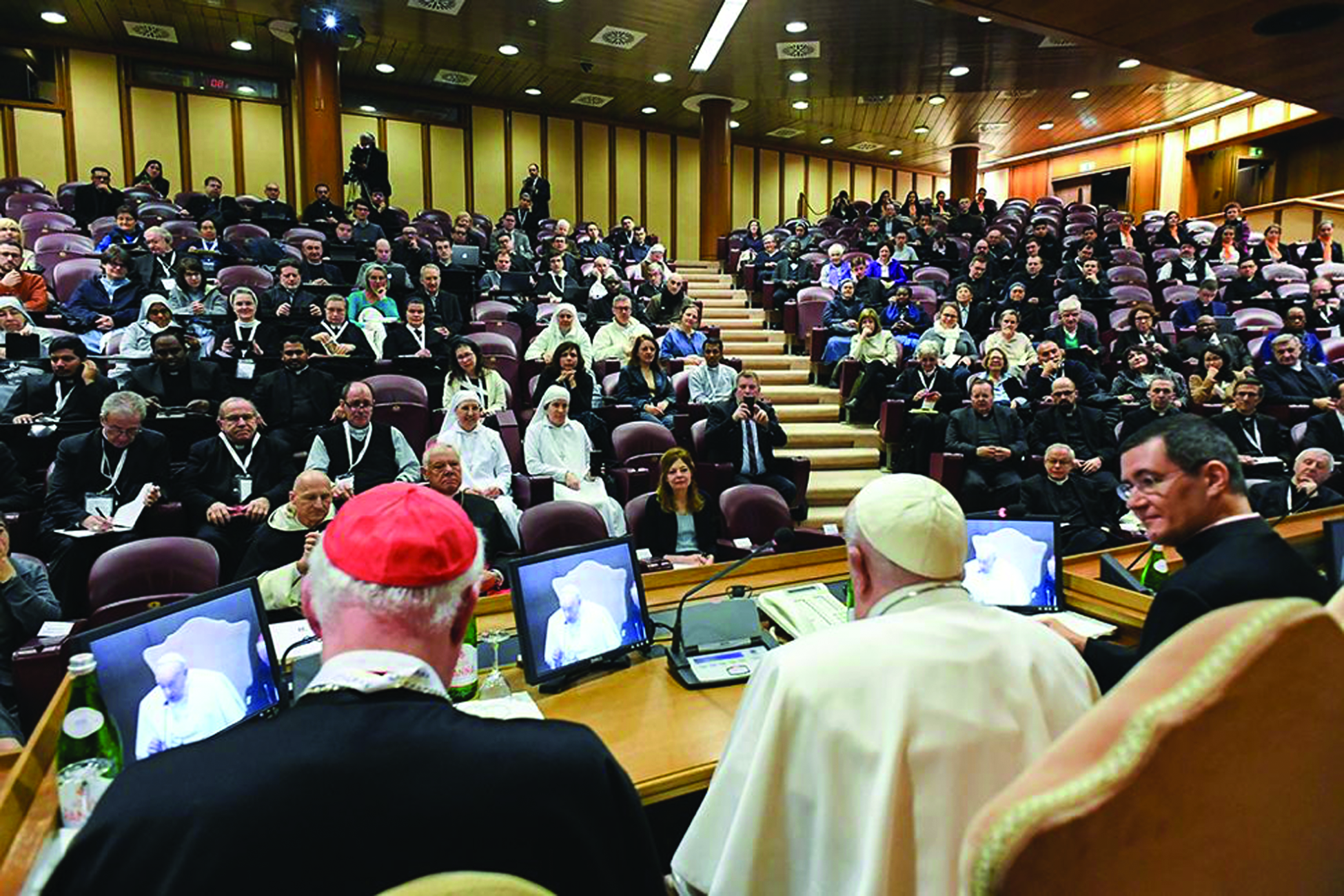The Pope met with the third World Congress of Ecclesial Movements and New Communities on Saturday, November 22, 2014.
Pope Francis has told lay Catholic movements to respect the freedom of young members and not take advantage of their immaturity.
The Pope also called on the movements to avoid “rivalries and backbiting” and cooperate for the common good while respecting the authority of bishops.
Pope Francis made his remarks on Saturday, November 22, in a meeting with participants in the third World Congress of Ecclesial Movements and New Communities.
Owing to “grave difficulties” in families and educational institutions all over the world, young people today “experience serious identity problems and have difficulty making proper choices,” the Pope said.
“As a result, they tend to let themselves be conditioned and to delegate important decisions about their own lives to others,” he said. “We need to resist the temptation of usurping individual freedom, of directing them without allowing for their growth in genuine maturity. Moral or spiritual progress which manipulates a person’s immaturity is only an apparent success, and one destined to fail.”
Pope Francis stressed that movements should cooperate with each other and with the heads of local churches.
“If, on the other hand, the world sees divisions, rivalries and backbiting, regardless of the cause, how can we evangelize?” he said. “New movements and communities are called to coordinate their efforts in caring for those wounded by a globalized mentality which places consumption at the center, neglecting God and those values which are essential to life.”
The Pope said that “real communion cannot exist in movements or in new communities unless these are integrated within the greater communion of our Holy Mother, the hierarchical Church.”
He also warned against excessive attachment to the distinctive practices that typically characterize such movements, noting the “temptation to become comfortable, to become hardened in set ways of doing things, which, while reassuring, are nonetheless sterile.”
“Even if a certain institutionalization of the charism is necessary for its survival, we ought not delude ourselves into thinking that external structures can guarantee the working of the Holy Spirit,” Pope Francis said. “Closed to the newness of the Spirit, such rigid forms and methods will eventually stifle the very charism which gave them life. We need always to return to the sources of our charism, and thus to rediscover the driving force needed to respond to today’s challenges.”
ADDRESS OF HIS HOLINESS POPE FRANCIS TO PARTICIPANTS IN THE THIRD WORLD CONGRESS OF ECCLESIAL MOVEMENTS AND NEW COMMUNITIES

A sign for the Sant’Egidio Community is seen as Pope Francis arrives for a Pentecost prayer vigil with members of Catholic lay movements in St. Peter’s Square at the Vatican on May 18. An estimated 200,000 people from 150 movements attended the vigil.
Dear brothers and sisters, Good morning!
I offer cordial greetings to all of you taking part in this Congress sponsored by the Pontifical Council for the Laity. I thank Cardinal Ryłko for his words, as well as Archbishop Clemens.
At the heart of your deliberations in these days are two elements which are essential for Christian life: conversion and mission. These are intimately connected. In fact, without an authentic conversion of heart and mind, the Gospel cannot be proclaimed; at the same time, if we are not open to mission, conversion is not possible and faith becomes sterile. The Movements and New Communities that you represent are moving towards a deeper sense of belonging to the Church, a maturity that requires vigilance in the path of daily conversion. This will enable an ever more dynamic and fruitful evangelization. I would like, therefore, to offer you a few suggestions for your journey of faith and ecclesial life.
1. First, it is necessary to preserve the freshness of your charism. Never lose that freshness, the freshness of your charism, always renewing the “first love” (cf. Rev 2:4). As time goes by, there is a greater temptation to become comfortable, to become hardened in set ways of doing things, which, while reassuring, are nonetheless sterile. There is the temptation to cage in the Holy Spirit: this is a temptation! However, “realities are more important than ideas” (cf. Evangelii Gaudium, 231-233); even if a certain institutionalization of the charism is necessary for its survival, we ought not delude ourselves into thinking that external structures can guarantee the working of the Holy Spirit. The newness of your experiences does not consist in methods or forms, or the newness itself, all of which are important, but rather in your willingness to respond with renewed enthusiasm to the Lord’s call. Such evangelical courage has allowed for the growth of your Movements and New Communities. If forms and methods become ends in themselves, they become ideological, removed from reality which is constantly developing; closed to the newness of the Spirit, such rigid forms and methods will eventually stifle the very charism which gave them life. We need always to return to the sources of our charism, and thus to rediscover the driving force needed to respond to challenges. You have not been schooled in such a spirituality. You have not attended an institution of spirituality in this way. You are not simply a small group. No! You are rather a movement, always on the way, always in movement, always open to God’s surprises which are in harmony with the first call of the movement, namely the founding charism.
2. A further issue concerns the way of welcoming and accompanying men and women of today, in particular, the youth (cf. Evangelii Gaudium, 105-106). We are part of a wounded humanity – and we must be honest in saying this – in which all of the educational institutions, especially the most important one, the family, are experiencing grave difficulties almost everywhere in the world.
Men and women today experience serious identity problems and have difficulty making proper choices; as a result, they tend to be conditioned and to delegate important decisions about their own lives to others. We need to resist the temptation of usurping individual freedom, of directing them without allowing for their growth in genuine maturity. Every person has their own time, their own path, and we must accompany this journey. Moral or spiritual progress which manipulates a person’s immaturity is only an apparent success, and one destined to fail. It is better to achieve less and move forward without seeking attention. Christian education, rather, requires a patient accompaniment which is capable of waiting for the right moment for each person, as the Lord does with each one of us. The Lord is patient with us! Patience is the only way to love truly and to lead others into a sincere relationship with the Lord.
3. One other consideration we must never forget is that the most precious good, the seal of the Holy Spirit, is communion. This is the supreme blessing that Jesus won for us on the Cross, the grace which the Risen Christ continually implores for us as he reveals to the Father his glorious wounds, “As you, Father, are in me, and I in you, may they also be in us, so that the world may believe that you have sent me” (Jn 17:21). For the world to believe that Jesus is Lord, it needs to see communion among Christians. If, on the other hand, the world sees divisions, rivalries, backbiting, the terrorism of gossip, please… if these things are seen, regardless of the cause, how can we evangelize? Remember this further principle: “Unity prevails over conflict” (Evangelii Gaudium, 226-230), because our brothers and sisters are always of greater value than our personal attitudes; indeed, it is for our brothers and sisters that Christ has shed his blood (1 Pet 1:18-19); it has not been shed for my ideas! In addition, real communion cannot exist in Movements or in New Communities unless these are integrated within the greater communion of our Holy Mother, the hierarchical Church.
“The whole is greater than the part” (cf Evangelii Gaudium, 234-237), and the part only has meaning in relation to the whole. Communion also consists in confronting together and in a united fashion the most pressing questions of our day, such as life, the family, peace, the fight against poverty in all its forms, religious freedom and education. In particular, New Movements and Communities are called to coordinate their efforts in caring for those wounded by a globalized mentality which places consumption at the centre, neglecting God and those values which are essential for life.
In order to attain ecclesial maturity, therefore, maintain — I say again — the freshness of your charism, respect the freedom of each person, and always strive for communion. Do not forget, however, that to reach this goal, conversion must be missionary: the strength to overcome temptations and insufficiencies comes from the profound joy of proclaiming the Gospel, which is the foundation of your charisms. In fact, “when the Church summons Christians to take up the task of evangelization, she is simply pointing to the source of authentic personal fulfilment” (Evangelii Gaudium, 10), the true motivation for renewal of one’s own life, since all mission is a sharing in the mission of Christ who always precedes and accompanies us in the work of evangelization.
Dear brothers and sisters, you have already borne much fruit for the Church and the world. You will bear even greater fruit with the help of the Holy Spirit, who raises up and renews his gifts and charisms, and through the intercession of Mary, who never ceases to assist and accompany her children. Go forward, always in movement… never stop but always keep moving! I assure you of my prayers and I ask you to pray for me – I have great need, truly – and I cordially impart to each of you my blessing.
I now ask you, together, to pray to Our Lady who had the experience of keeping alive the freshness of the first encounter with God, of moving forward in humility, always being on the way, respecting each person’s time. She never tired of having this missionary heart.
Hail Mary…







Facebook Comments